• A Reflection for Parashat Chukat, the ALEPH Kallah & July 4th Weekend
This week, I’ve been deeply immersed in one of the most meaningful roles I’ve ever undertaken: serving as the Sacred Space Coordinator for the 2025 ALEPH Kallah. My mission was to transform parts of the hotel and convention center into spaces of reflection, intention, beauty, and holiness—places where people could pause, breathe, and connect more deeply with their hearts and with each other.
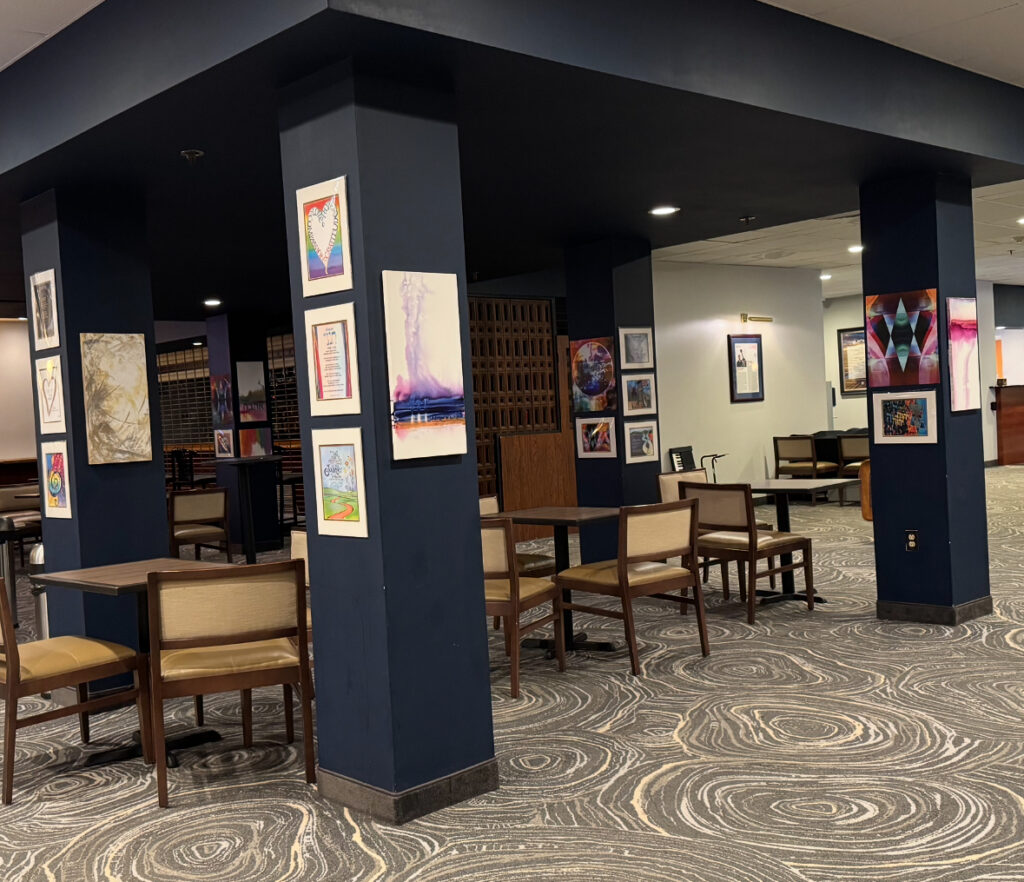
As you walk through the lobby, you’re greeted by color, kavannah, and quiet invitation.
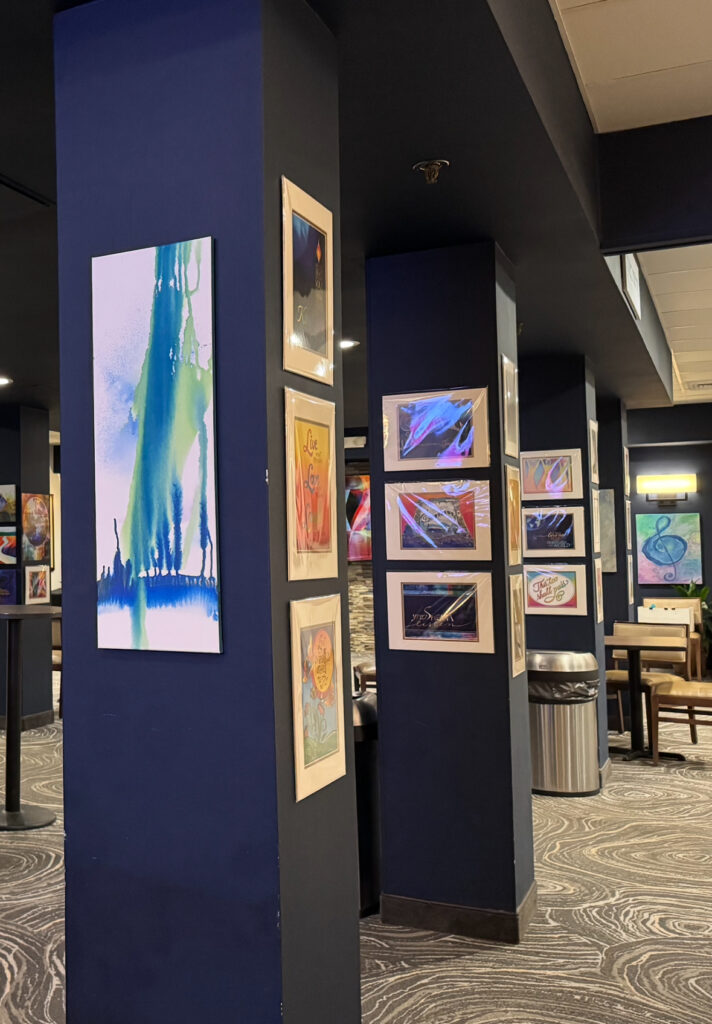
Each area holds an energy all its own, from the fabric and artwork softening the entryway to the 7 Days of creation in the Dining Hall.
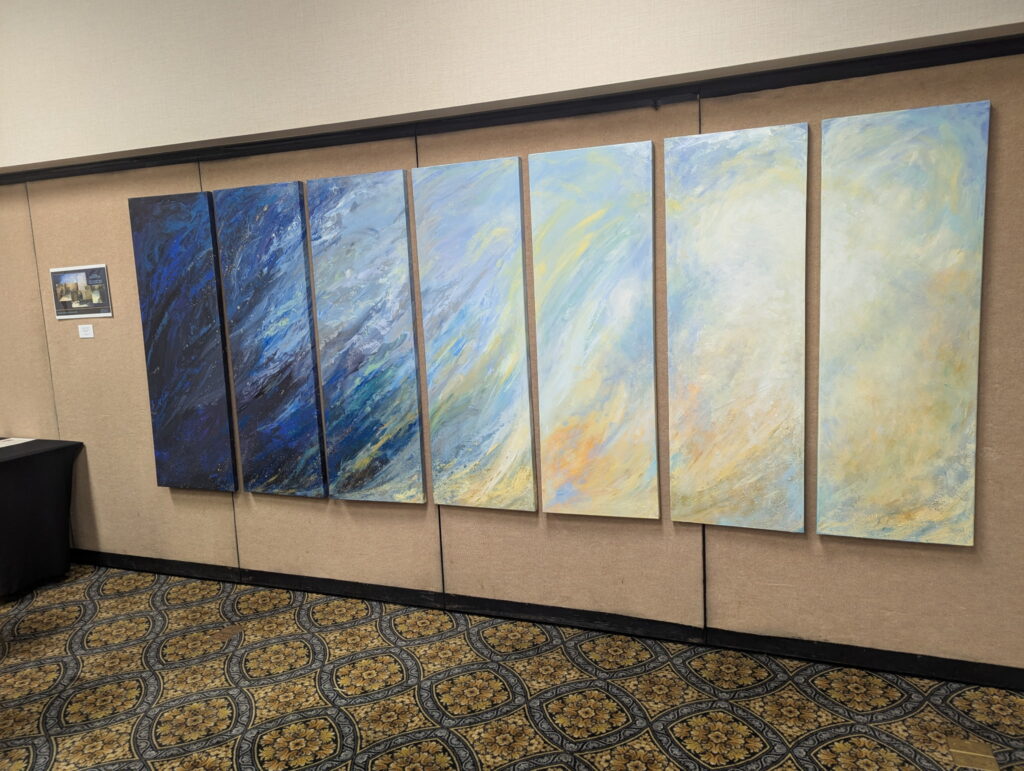
One of my favorite installations is the Walkway of Torah, where I’ve displayed all 54 of my illuminated parasha prints. Walking this path is like walking the spiritual journey of our year—from B’reishit to V’zot Habrachah—a visual pilgrimage through sacred text and artistic kavannah.
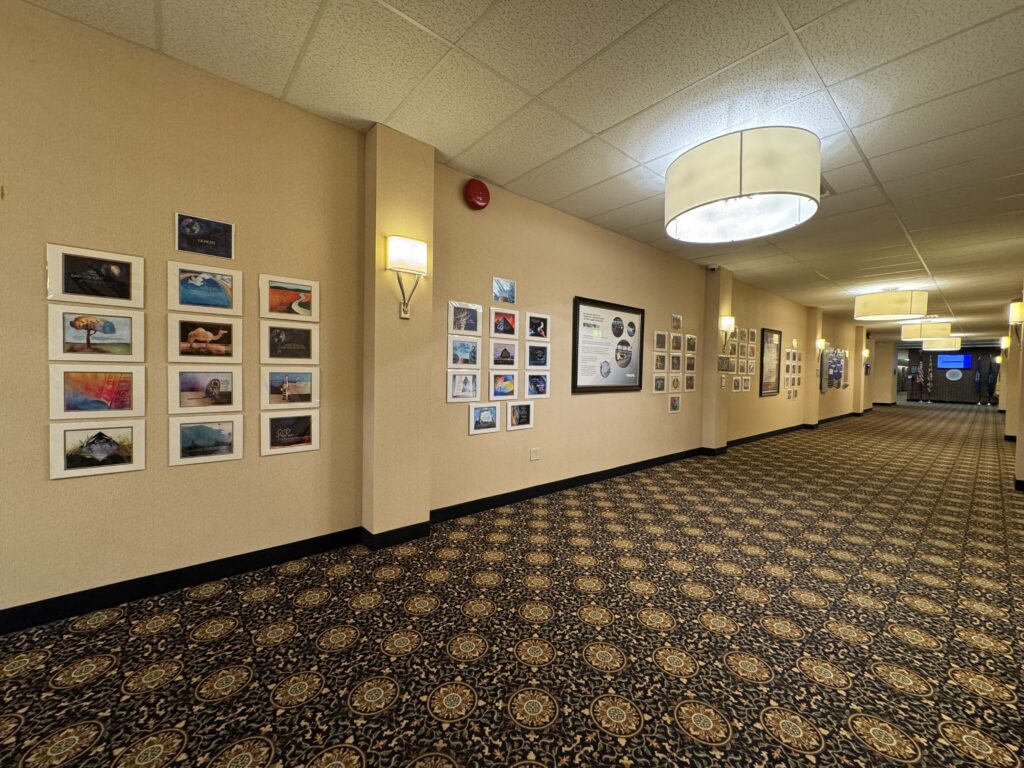
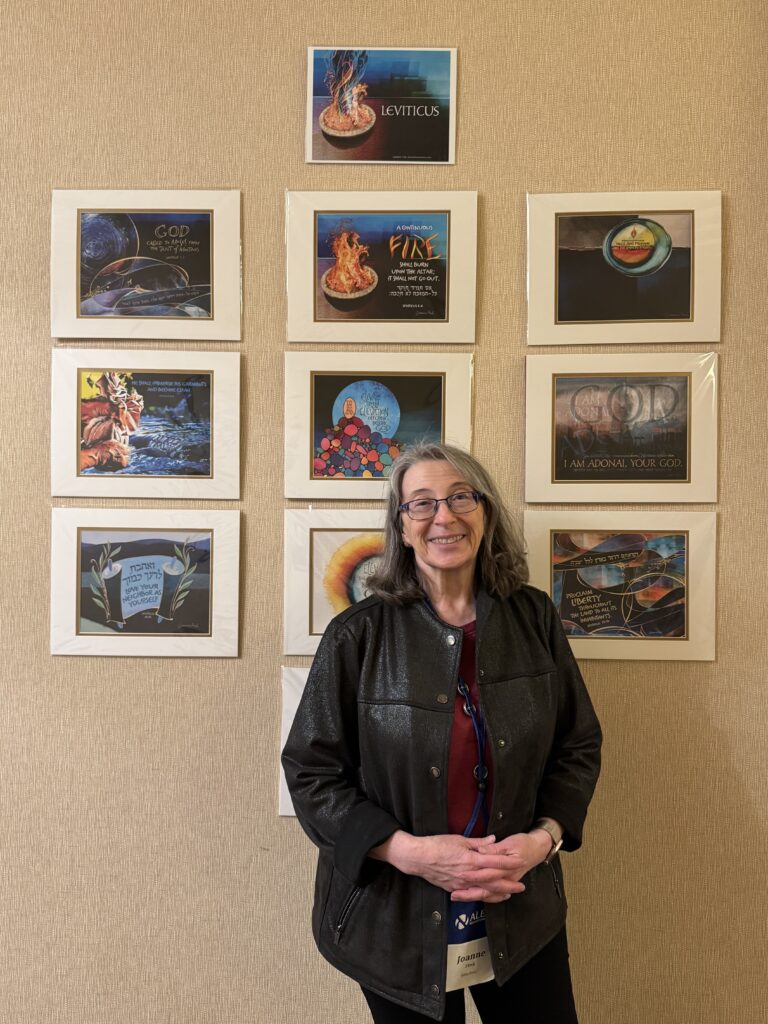
But the soul of this experience, for me, has been curating the Remembrance Room, Makom Hazikaron. Here, we honor 50 beloved leaders of the Jewish Renewal movement—those whose light helped shape this community, and whose absence we still feel. Each person is remembered with a commemoration created using MyZenScribe.com, a platform I built to help Jewish professionals personalize life-cycle materials. After more than two years in development, ZenScribe is now in beta testing– please let me know if you have interest in being a beta-tester.
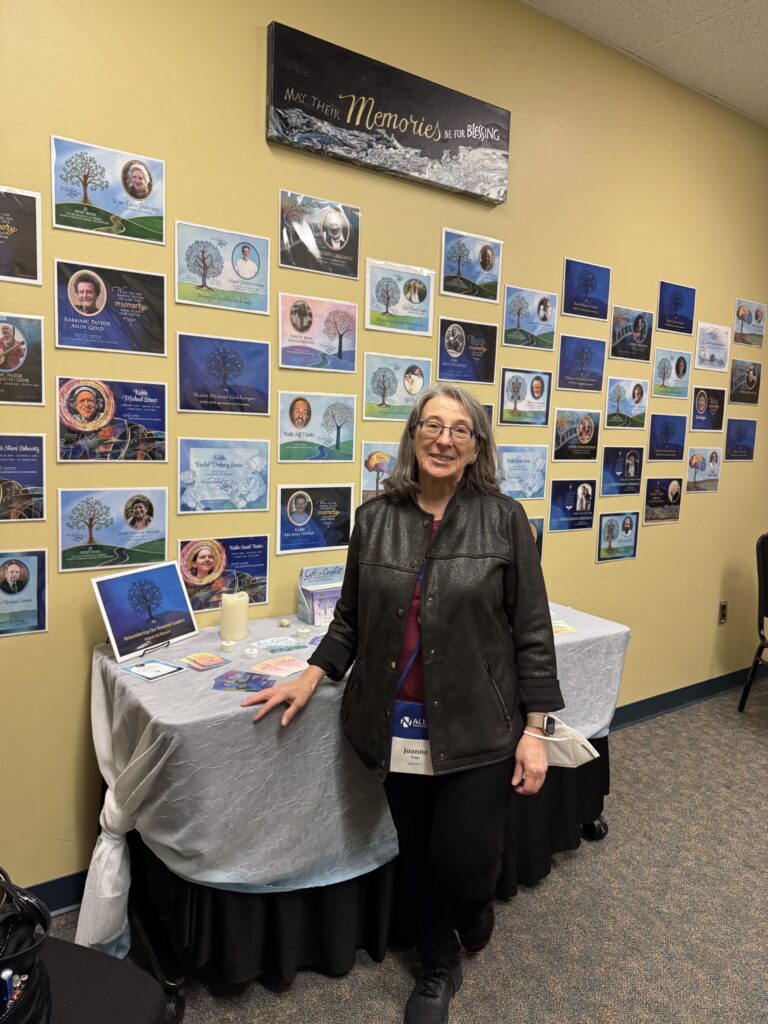
The Remembrance Room also features photos from the stunning Transformational Memorial Branch Garden created by my dear friend Anael Atara, who honored a dozen of the teachers and soul-guides who touched her life.
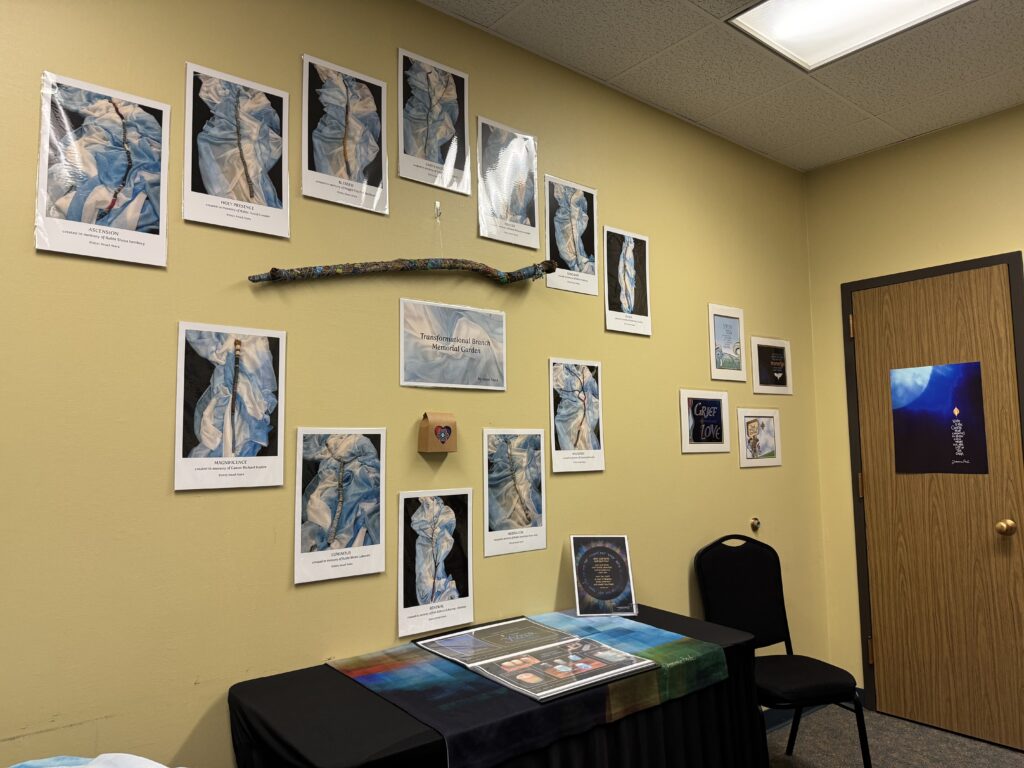
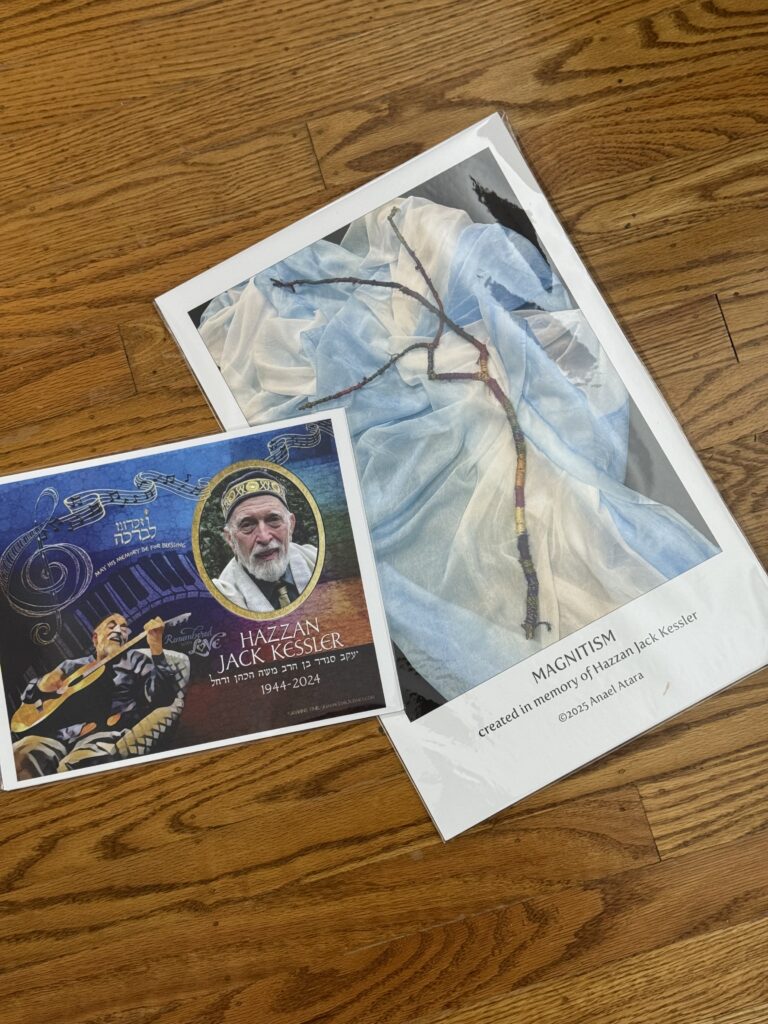
These branches reach upward and outward, echoing both grief and gratitude, loss and love.
Chukat and the Power of Communal Mourning
This sacred work ties directly into Parashat Chukat, a portion steeped in loss, leadership transition, and sacred responsibility. In Chukat, we experience profound communal grief:
“The entire community saw that Aaron had died, and they mourned him for thirty days.” (Numbers 20:29)
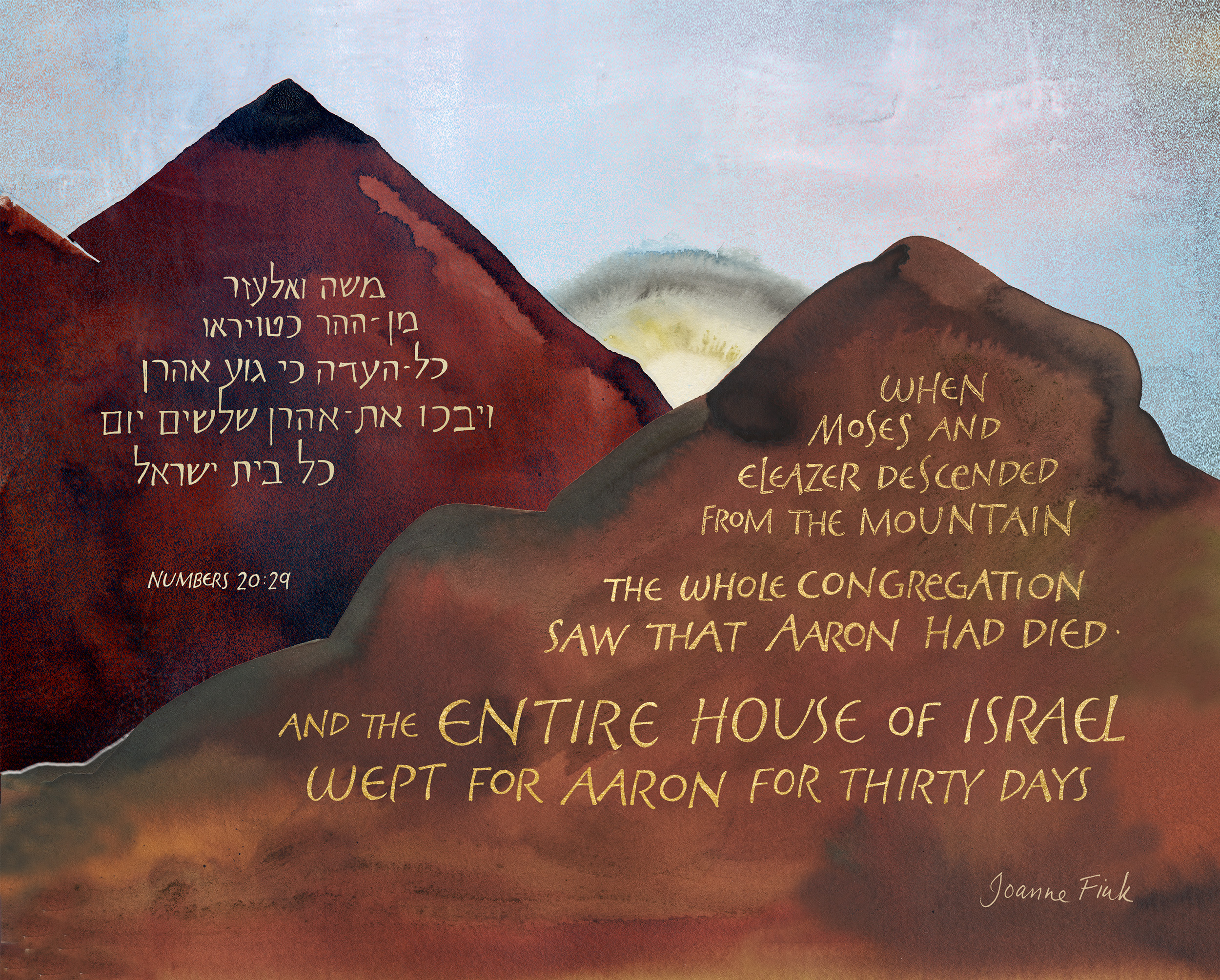
Aaron, the High Priest, the peace-seeker, the spiritual heart of the people—gone. And the entire nation pauses to grieve.
We don’t often see collective mourning like this in the Torah. It reminds us that memory is not just personal; it is communal. Our ancestors wept together. They bore witness to Aaron’s legacy, not only through words but through silence, tears, and presence.
At the ALEPH Kallah, this sacred remembering lives on. In the hush of the Remembrance Room. In the stories we tell and the tears we shed. In the songs we sing and the hearts we touch.
The power of remembrance doesn’t only honor the past—it shapes who we become. It reminds us of the sacred responsibility we carry: to remember, to live with intention, and to continue the work our teachers began.
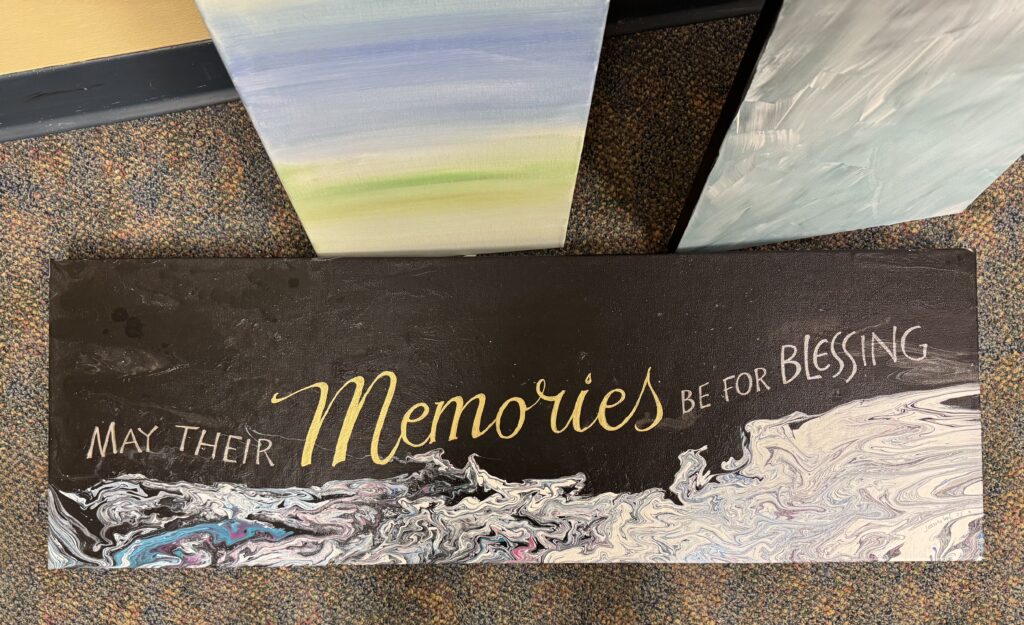
Seeking Serenity
A Prayer for Parasha 39: Chukat
God, grant me the ability
to be an advocate for change—
the courage—and the means—
to change the things I can,
and the wisdom
to discover and implement
effective ways to make a difference.
Inspired by the serenity prayer, these words are my kavannah for this moment—personally, communally, and globally.
Today also marks the 4th of July, a time when we celebrate liberty, justice, and the enduring hope for a more perfect union. As we welcome Shabbat, I offer this prayer for freedom—not only as a national ideal, but as a personal and spiritual calling:
A Prayer for Liberty
May we cherish the freedom
to speak, to gather, to pray, and to grow.
May we use our liberty
to pursue justice,
to uplift the vulnerable,
to protect the earth,
and to repair what is broken.
May we never take for granted
the sacred right to be who we are
and to become who we are meant to be.
May true freedom ring—
not only from bell towers and mountaintops,
but in our hearts, our homes,
and our communities.
Journaling Prompts for This Week
Reflect on one or more of the following:
- Who is someone whose light still guides you, even though they are no longer physically present?
- What rituals or spaces help you feel connected to those who came before you?
- Where do you sense the need for healing—in yourself, in your community, or in the world?
- What does “sacred space” mean to you? How might you create or invite it into your daily life?
A Blessing for Sacred Remembrance
May the memory of those who came before us
be a wellspring of strength and inspiration.May their teachings take root in our actions,
and their love live on in the way we walk through the world.May we hold space for sorrow and for celebration,
for tears and for transformation.And may our remembering be an offering—
a light shining forward,
illuminating the path
for generations yet to come.
Wishing you a Shabbat of peace, of presence, and of purpose.
With blessings from the Kallah,
Joanne
